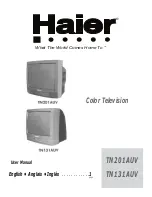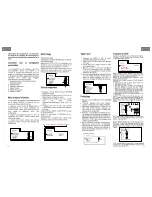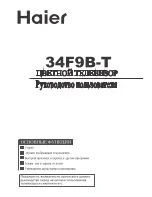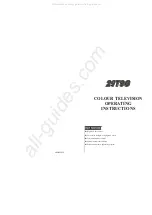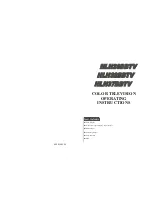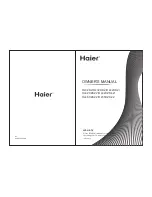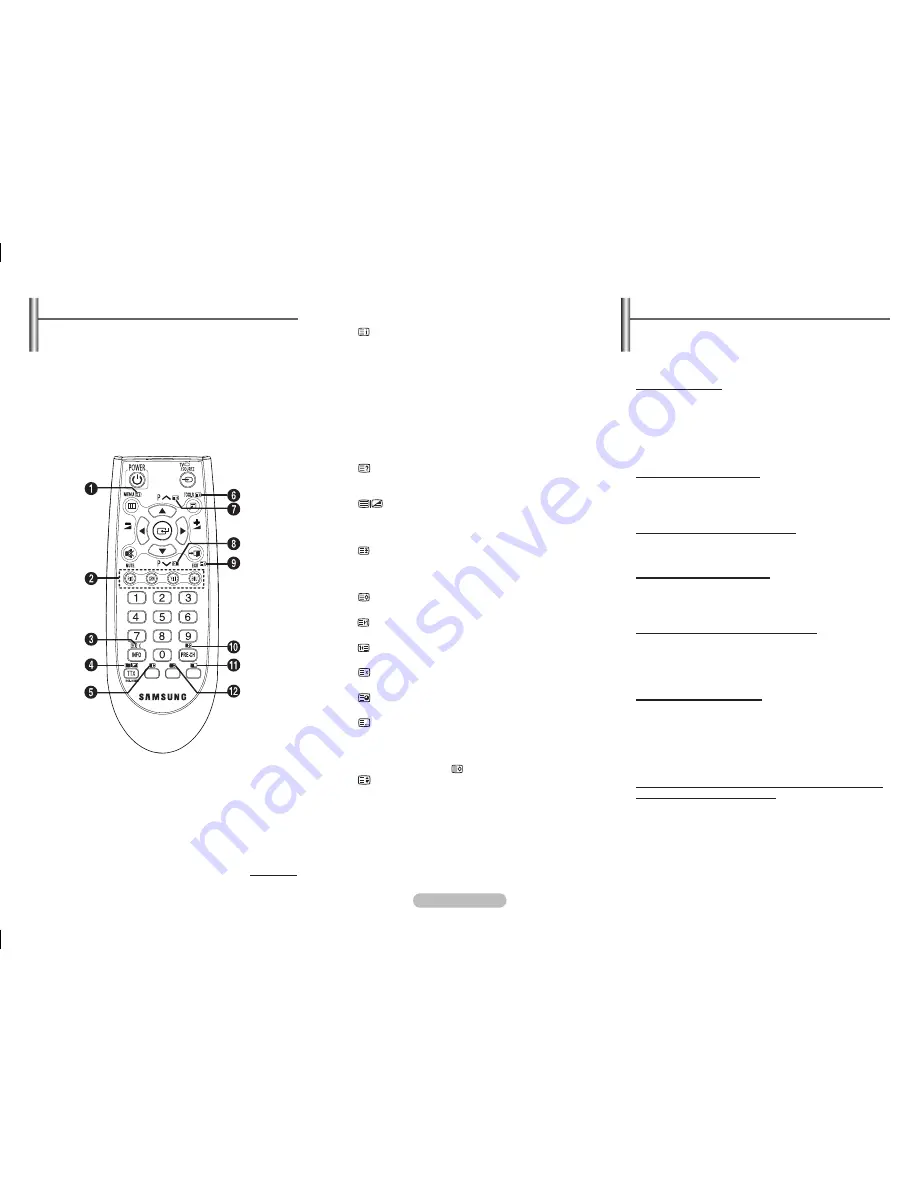
English - 7
Troubleshooting
Before contacting the Samsung after-sales service, perform
the following simple checks. If you cannot solve the problem
using the instructions below, note the model and serial number
of the television and contact your local dealer.
No sound or picture
Check that the mains lead has been connected to a wall
socket.
Check that you have pressed the “
P
” button (On/Off)
and the
POWER
button on remote control.
Check the picture contrast and brightness settings.
Check the volume.
Normal picture but no sound
Check the volume.
Check whether the volume
MUTE
button on the remote
control has been pressed.
No picture or black and white picture
Adjust the color settings.
Check that the broadcast system selected is correct.
Sound and picture interference
Try to identify the electrical appliance that is affecting the
television, then move it further away.
Plug the television into a different mains socket.
Blurred or snowy picture, distorted sound
Check the direction, location and connections of your
aerial.
This interference often occurs due to the use of an indoor
aerial.
Remote control malfunctions
Replace the remote control batteries.
Clean the upper edge of the remote control (transmission
window).
Check that the “+” and “–” ends of the batteries are
inserted correctly.
Check that the batteries are drained.
A still image may cause color distortion, but with normal
sound(white or highlight image).
Switch to other channels with moving image, and check if
the color turns normal after 5 minutes.
Turn off the TV, and turn it on after 30 minutes to check
the color.
1
(index)
Used to display the index (contents) page at any time
while you are viewing teletext.
2
Colored buttons (red/green/yellow/blue)
If the FASTEXT system is used by a broadcasting
company, the different topics covered on a teletext page
are color-coded and can be selected by pressing the
colored buttons. Press one of them corresponding to
the required. The page is displayed with other colored
information that can be selected in the same way. To
display the previous or next page, press the corresponding
colored button.
3
(reveal)
Used to display the hidden text (answers to quiz games,
for example). To display normal screen, press it again.
4
(teletext on/mix)
Press to activate teletext mode after selecting the channel
providing the teletext service. Press it again to overlap the
teletext with the current broadcasting screen.
5
(hold)
Used to hold the display on a given page if the selected
page is linked with several secondary pages which follow
on automatically. To resume, press it again.
6
(store)
Used to store the teletext pages.
7
(page up)
Used to display the next teletext page.
8
(page down)
Used to display the previous teletext page.
9
(cancel)
Used to display the broadcast when searching for a page.
0
(sub-page)
Used to display the available sub-page.
!
(mode)
Press to select the teletext mode (LIST/FLOF).
If you press it in the LIST mode, it switches into the List
save mode. In the List save mode, you can save teletext
page into list using the
(store)
button.
@
(size)
Press to display the double-size letters in the upper half of
the screen. For lower half of the screen, press it again. To
display normal screen, press it once again.
Teletext Feature
(depending on the model)
Most television stations provide written information services
via teletext. The index page of the teletext service gives you
information on how to use the service. In addition, you can
select various options to suit your requirements by using the
remote control buttons.
☛
For teletext information to be displayed correctly, channel
reception must be stable. Otherwise, information may be
missing or some pages may not be displayed.
continued...
AA68-04052F_Eng.indd 7
2010-01-28 �� 12:00:14









